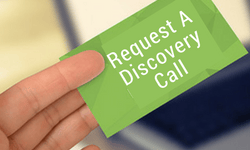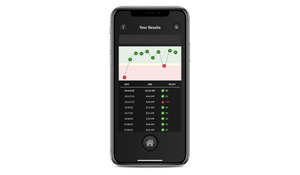Utilizing Impairment Detection Technology vs. Drug Testing for THC
In February, Maryland lawmakers debated various bills to protect marijuana consumers from workplace discrimination. Maryland, like many other states, has legalized cannabis and this has put many employers in a difficult situation of identifying who is actually impaired at work without discriminating against use outside of the workplace.
Here are a few excepts from the hearing;
“This legislation protects civil liberties and it does not jeopardize workplace safety,” said NORML Deputy Director Paul Armentano. “Changes in the state legal status of cannabis do not adversely impact workplace safety or workplace performance. In fact, studies consistently show that employees who consume cannabis during their off hours perform no differently than their non-using peers. Specifically, an exhaustive review conducted by the U.S. National Academy of Sciences determined, and I quote, ‘There is no evidence to support a statistical association between cannabis use and occupational accidents or injuries.'”
Armentano also noted that the bill doesn’t prevent employers from testing workers for impairment.
“Employers would be free to utilize performance-testing technology like AlertMeter... in the workplace,” he said. “This technology, unlike urinalysis or blood tests, engages employees’ actual cognitive impairment versus their own personal baseline, thereby providing a far more accurate determination of whether someone is actually impaired on the job. By contrast, urine testing only identifies active [inactive?] metabolites, which may be detectable for weeks or even months following cannabis use.”
Olivia Naugle, senior policy analyst at MPP, said testing for cannabis results in “completely sober, capable workers losing their jobs or not being hired for having used cannabis—which is a legal substance in Maryland—days or even weeks earlier.”
“Other states that have legalized cannabis for adults are increasingly acting to ensure workers don’t lose their jobs for using cannabis after work hours,” she said.
Why Companies Are Adopting AlertMeter® (Impairment Detection Tools)
Many companies that Predictive Safety works with have changed their drug policies with the legalization of marijuana and are treating it very similar to alcohol. The issue is not if you test positive for marijuana but if you are actually impairment and your performance is affected which could create a unsafe work environment.
The fact that THC stays in the system for up to 3 weeks is what makes traditional drug testing difficult for companies to use, especially as cannabis is legalized in more and more states and countries.
To clarify, it’s not THC that stays in the system for weeks, it’s an inactive metabolite of THC that does. Urine and hair tests detect that metabolite, which is why it is becoming illegal in many states to discriminate against workers based on urine or hair tests. Oral swab and breathalyzer tests do detect THC and will be legal to use in California. They are a better indicator of recent use (days or hours), but they do not detect impairment, so your technology and campaign will be useful here. Many companies have accepted the changing laws and have removed THC or its metabolites from their tests and look at performance instead.
Further comments from Paul Armentano dive further into this.
"Biological detection tests must not be conflated with impairment testing. Biological testing — whether it be urinalysis, hair follicle testing, saliva testing, or blood testing, or even a breathalyzer — simply identify the presence of compounds in bodily fluids. In the case of urinalysis, the test can only detect inert byproducts of THC which may be detectable for weeks or even months after past exposure — long after any window of impairment has worn off. (By contrast, both saliva testing and blood testing can detect either THC or its metabolites; however, THC can also remain detectable for days following past exposure — again, well after impairment has worn off.) This is why the US department of Justice acknowledges that a positive test, even when confirmed, "only indicates that a particular substance is present in the test subject's body tissue. It does not indicate abuse or addiction; Recency, frequency, or amount of use; or impairment.”
The Difficult Task To Identify Who Is High At Work
A recent WSJ Article outline the difficult task employers have identifying who could be "high at work". With the changing legislation and subjectivity to identifying who could be impairment it's essential to give your managers tools and training to help with this difficult responsibility and ensure the safest workplace as possible.
Using powerful engagement tools like The AlertMeter® and other training, in conjunction with your current drug policies, greatly reduces the subjectivity of identifying who could be impaired and allows companies to reduce their risk and engage with their workers in a much more effective manner.
References
Click Here for the full hearing



